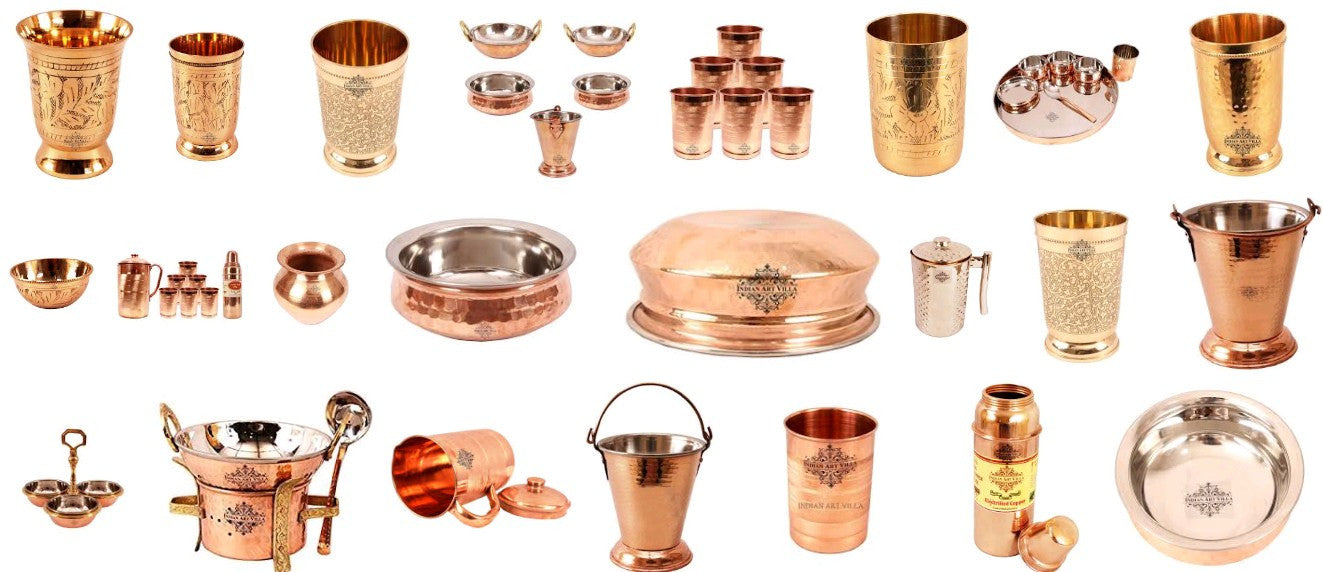Top Trends in Home Decoration Featuring Elegant and Useful Copper Products
Top Trends in Home Decoration Featuring Elegant and Useful Copper Products
Blog Article
Exploring the Diverse Applications of Copper Products in Modern Industries
From boosting the performance of electric systems to playing an essential duty in renewable energy innovations, the adaptability of copper is noticeable. As industries progressively prioritize innovation and sustainability, the diverse applications of copper call for a closer evaluation, specifically regarding their prospective influence on future technological innovations and ecological practices.
Electrical Applications of Copper
Copper is an essential material in the electric industry, making up around 60% of the total need for non-ferrous metals worldwide - Copper Products. Its superior electrical conductivity, which is virtually two times that of aluminum, makes it the recommended selection for a variety of electrical applications. From electrical wiring systems in household and industrial buildings to high-voltage power transmission lines, copper guarantees performance and integrity in electrical power shipment
Along with circuitry, copper is integral to the manufacturing of electrical components such as generators, transformers, and motors. These elements utilize copper's thermal conductivity and pliability, crucial for warm dissipation and effective performance. In addition, copper's resistance to corrosion enhances the lifespan and longevity of electrical systems, making it a cost-effective remedy in the long-term.
The development of renewable resource resources, such as solar and wind power, has better enhanced the demand for copper in electric applications. As industries transition in the direction of lasting energy solutions, copper's duty becomes much more important. Overall, the adaptability and efficiency attributes of copper solidify its condition as a cornerstone material within the electric market, driving advancement and performance across numerous applications.
Plumbing and Piping Solutions
In modern plumbing systems, the choice of products dramatically impacts both performance and longevity. Copper has arised as a preferred choice as a result of its special properties, including corrosion resistance and antimicrobial attributes. These characteristics guarantee that copper piping remains durable and secure for moving drinkable water, a critical factor to consider in property and commercial applications.
One of the crucial benefits of copper in plumbing is its ability to withstand high temperature levels and stress, making it appropriate for a range of applications, from warm water systems to home heating and cooling down networks. In addition, copper's adaptability permits less complicated installment in intricate piping layouts, decreasing the threat of failures and leaks.
One more noteworthy benefit is copper's long life expectancy, commonly exceeding 50 years with correct maintenance. This longevity not just lessens replacement prices yet additionally adds to sustainable practices by lowering waste. Copper's recyclability straightens with contemporary ecological criteria, advertising a round economic climate within the pipes industry.
Copper in Renewable Energy
The versatility of copper prolongs beyond pipes applications, playing an important role in the renewable power industry. In solar panels, copper is used in photovoltaic or pv cells and circuitry, assisting in efficient power conversion and transmission.

In addition, as the global demand for electrical cars (EVs) boosts, copper's function in battery systems and billing framework becomes also extra substantial. The product's capability to conduct electrical power effectively is important to the efficiency of EV batteries, improving range and charging rate.
Copper's Duty in Electronic devices
Electronic devices making counts heavily on copper's exceptional residential properties, specifically its high electrical conductivity and thermal performance. These attributes make copper a suitable option for a variety of electronic elements, including connectors, circuit card, and electrical wiring. The metal's capacity to successfully transfer electrical signals makes certain very little power loss, which is essential in high-performance electronic tools.
Additionally, copper's thermal conductivity plays a considerable duty in warm dissipation, protecting delicate parts from overheating. This reference is particularly important in modern-day electronics, where portable designs lead to raised warm generation. Copper is additionally favored for its pliability and ductility, allowing it to be easily formed into detailed designs that fulfill the demands of sophisticated electronic applications.
With the surge of consumer electronic devices, telecommunications, and electrical vehicles, the demand for copper in the electronics market continues to grow. As technologies in technology progress, copper continues to be essential to attaining higher performance and integrity in digital products. Its recyclability even more enhances its charm, as suppliers seek sustainable services without compromising top quality. Hence, copper remains a cornerstone material in the ever-expanding area of electronic devices.
Cutting-edge Makes Use Of in Production

One significant application is in additive production, where copper-based products are utilized in 3D printing procedures. This enables the creation of lightweight parts and complex geometries, specifically in the aerospace and vehicle sectors. Additionally, copper's thermal conductivity makes it a perfect choice for warm exchangers, improving effectiveness in commercial cooling systems.
Furthermore, the rise of wise manufacturing has seen the unification of copper this link in IoT gadgets, where its conductive capacities support sophisticated noticing technologies. In the world of eco-friendly energy, copper is essential in the production of solar panels and wind turbines, helping with extra efficient energy conversion and circulation.
As industries pursue sustainability and advancement, copper's versatility and efficiency continue to position it as an essential product, driving innovations in production and contributing to the growth of smarter, more efficient products.
Final Thought
In recap, copper items demonstrate remarkable flexibility throughout numerous modern industries. Copper Products. Their remarkable conductivity improves electrical applications, while corrosion resistance guarantees dependability in pipes. The important duty of copper in renewable power and its necessary feature in electronic devices emphasize its importance ahead of time lasting practices. Furthermore, ingenious usages in producing highlight copper's versatility and withstanding importance. Collectively, these applications show copper's important payment to technical development and industrial efficiency in modern society.
From improving the efficiency of electric systems to playing an important function in renewable power innovations, the flexibility of copper is evident. As sectors progressively focus on development and sustainability, the diverse applications of copper necessitate a closer evaluation, particularly concerning see this here their potential influence on future technical advancements and ecological methods.
The development of eco-friendly energy resources, such as solar and wind power, has additionally enhanced the need for copper in electrical applications. Overall, the versatility and efficiency attributes of copper solidify its condition as a keystone material within the electric sector, driving innovation and effectiveness throughout various applications.
The adaptability of copper extends beyond pipes applications, playing an essential function in the sustainable power industry.
Report this page